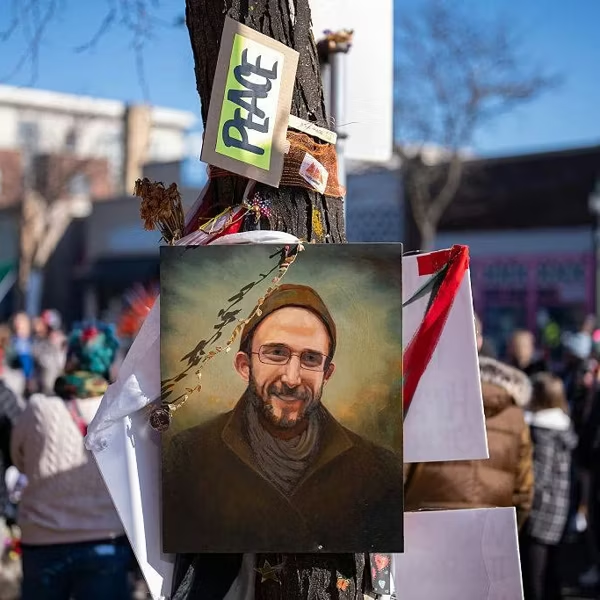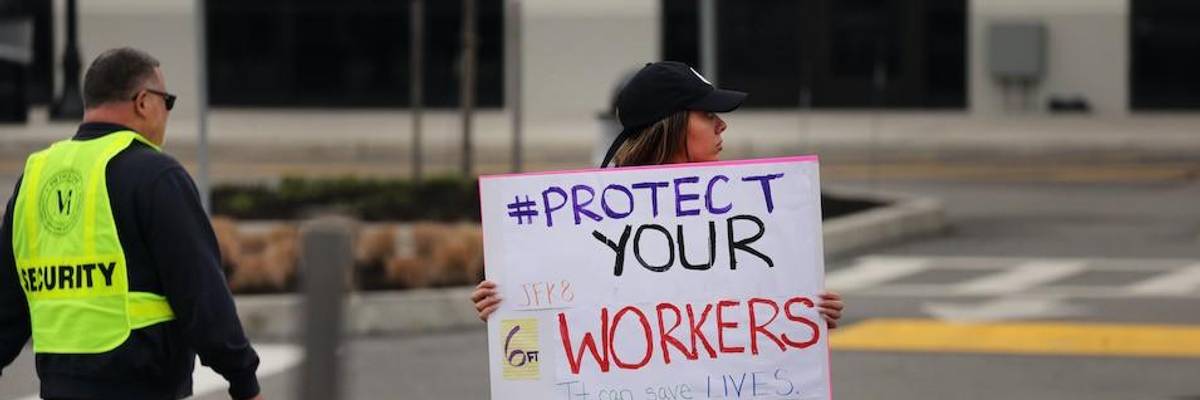Key takeaways:
- Working people should not have to wait for a fourth recovery bill for vital, lifesaving protections, while corporations have received $450 billion in aid with no strings attached.
- The federal government should take on the role of "payroll of the last resort" like some other nations, in order to keep working people on the payroll with access to health care.
- The "phase four" recovery bill should contain enhanced protections for all workers performing essential work during this crisis, such as providing personal protective equipment, hazard pay, whistleblower protections, and bolstered collective bargaining rights.
Since March 8, Congress has passed three bills allocating trillions of dollars to relief and recovery measures in response to the coronavirus pandemic. These bills included some important provisions for workers hurt by the pandemic. Chief among those are funding for expanded unemployment insurance, increased access to paid sick leave for some workers, and funding for the airline industry to keep paying workers and covering their benefits. However, direct aid to workers was a small percentage of the overall funding in these relief and recovery measures. Much of the money included in these bills went directly to corporate interests. For example, the CARES Act included $450 billion in aid to impacted firms with virtually no strings attached. Instead of requiring firms receiving this bailout money to maintain pre-pandemic payroll levels, wages, and benefits, the language in the bill requires that such worker protections be provided "to the greatest extent practicable." This is toothless language that does not require employers to use this taxpayer money to keep workers employed.
The airline industry relief funding was the only example of financial assistance with a serious string attached--requiring relief funds to be used explicitly for the "continuation of payment of employee wages, salaries, and benefits." However, the Trump administration seems to be playing politics with the implementation of this program. It is unfortunate if not unpredictable that the sole program that provided a subsidy for workers' wages and benefits is now the source of a political battle that jeopardizes its efficacy.
This is one of the main problems with the way our government has responded to this crisis. Instead of choosing to allocate resources to preserve labor market matches between workers and their employers, taking on the role of "payroll of the last resort" like some other nations and paying the payroll costs for firms, policymakers have provided bailout funds for firms that do little to keep impacted workers on payroll. As a result, millions of workers and their families are now living through the anxiety and economic upheaval of job loss, and the loss of health coverage.
Working people deserve a relief and recovery bill that truly places them first. While much has been said about the sacrifices and heroic efforts of essential workers at this moment, little has been done for these workers. As a result, workers continue to be required to work without protective gear. Sick workers continue to lack access to paid sick leave. And, when workers try and speak up for themselves and each other they are fired. Workers are dying as a result. Even a global pandemic has not been enough for policymakers to place the needs of working people ahead of corporate interests. America's workers are being forced to wait for a fourth relief bill for meaningful worker protections. Or, in the case of the airline industry workers, are being required to fight again for protections they thought that had won in the third relief package.
Enough is enough. Workers are risking their lives every day to provide the services we have deemed to be essential. These workers' needs and interests must be essential to the elected officials who represent them and must be central components of additional relief and recovery measures.
Workers should not have had to wait for a "phase four" relief package, but any additional legislation must provide enhanced protections for all workers performing essential work during this crisis. While it is crucial to ensure people who can't work as a result of the virus still get a paycheck, we also need to make sure that essential workers who are on the frontlines are safe and well-compensated. These protections must include an absolute right to a safe workplace. This means that employers must be required to provide all essential workers with personal protective equipment--and the government must ensure that firms can access to this gear. Workers should be compensated fairly for the work they are performing under difficult conditions. All essential workers must receive hazard pay. This includes workers in health care and first responders, but goes well beyond these critical workers--workers providing any services considered essential must receive hazard pay. Whistleblower protections must be expanded to ensure that when workers speak up about unsafe working conditions, they are protected from retaliation. Finally, workers that have unions must have their collective bargaining agreements protected. Unions win workers critical workplace protections and firms must not be permitted to use this crisis to change or dissolve those protections--including during bankruptcy proceedings.
The pandemic has exposed the inadequacy of our current system of worker protections. Stories of workers being forced to work without protective gear or being fired after demanding a safe workplace may be shocking to some; but, for millions of this nation's workers, this has long been their reality. Non-union workers have appallingly few protections on the job. And, when they try and voice concerns over working conditions or demand union representation, they are routinely fired. It is this system that has led to essential workers being forced to walk off the job to have their voices heard and wait weeks (if not longer) for lawmakers to deliver fundamental protections to those workers delivering essential services. Policymakers must act urgently to provide essential workers critical protections. But, they must also make it easier for all workers to have access to a union so that workers can win critical protections for themselves and are not held hostage to political fights that leave them forced to risk their lives to keep their job.




